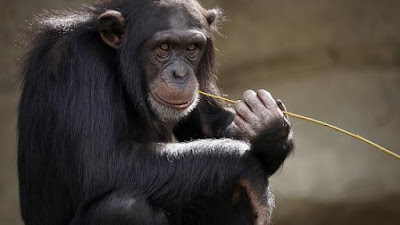We've heard many stories of people keeping exotic animals as pets. While some of these creatures have their cuteness or coolness factor, they're don't necessarily make good pets. In fact, you sometimes come across tales of exotic pet ownership gone wrong. Today's post discusses some of the animals that perhaps shouldn't be kept as pets.
Fox
Can I just say, foxes are adorable. We see pictures of red, arctic, and fennec foxes all the time, among other fox species. During a high school field trip to Discovery Kingdom, I also saw a trainer working with a fox. It reminded me of a puppy or young dog, with its cheerful grin. Don't think I've ever seen a dog jump so high, though.
I've also read about people keeping foxes as pets. In some cases, they're foxes rescued from a fur farm, or a formerly wild animal that couldn't be returned to its natural environment. There's also some foxes that have been bred for temperament. But even the selective breeding is a relatively new project, unlike the cats and dogs whose domestication goes back thousands of years, and they're not the same as the domestic animals commonly kept.
For one example, foxes can never be fully housebroken. You'd either have to keep the fox outdoors, or be willing to clean up after it whenever it relieves itself in the house. Fox urine is also extremely pungent, so it's not a smell you'd likely want to put up with.
Foxes are high-energy animals, so they'd need a lot of exercise. And keep in mind, a bored animal, whether wild or domestic, sometimes becomes destructive. (glances over at the border collie destroying its master's shoes) Foxes can also be mouthy when playing, so you'd likely receive a fair number of play bites.
Hippopotamus
♪♫ Oh, I want a hippopotamus for Christmas... Only a hippopotamus will do... ♫♪
You might be familiar with this song, sometimes played during the holiday season. The singer doesn't want a crocodile or rhinoceros (admittedly, also bad choices for pets), they want a hippo. Their mother claims a hippo would eat them, but their teacher says the hippo is a vegetarian, so no danger there.
In reality, while the hippo is an herbivore, they're also extremely territorial and aggressive. Combine that with their enormous size, huge tusks, and powerful jaws, and you've got a pretty formidable creature. In fact, they're considered one of the most dangerous animals in the world. Not an animal you want to anger.
Big Cats
On occasion, you hear a story of someone keeping exotic animals like tigers or lions as pets. While there's no denying the allure of big cats, they're not exactly the safest or cheapest animals to keep. They'd require a sizable enclosure, and a lot of meat.
And if the food bills and zillion feet of fencing doesn't turn you off from the idea, consider what might occur if they escape their enclosure. If your 400 lb. kitty turns aggressive or decides a human looks like food, you'll have a serious problem. When taking down prey, large cat species often go for the head or throat. They have sufficient strength in their jaws to sever the spine or crush the skull. And even a well-aimed swat of their paw is enough to cause some serious damage. A person could be seriously injured or killed in an instant.
Chimpanzees
Some people also keep chimps as pets, in some cases allowing them to freely roam their homes. These animals require a lot of socialization and mental stimulation, along with a plenty of space to roam. A house may not be sufficient, especially as they get older. An enclosure would have to be fairly large, and being social animals, they shouldn't be housed alone.
Aside from the issue of trying to keep your pet from climbing the curtains or throwing things around for fun, they can be extremely territorial. In the wild, it's not uncommon for chimps to kill each other in battles over territory. They also possess greater physical strength than humans, and their bites are powerful enough to sever fingers. There's been many stories of chimpanzees kept as pets or in captivity becoming aggressive and attacking, often with horrific results.
In short, while some animals may seem like great pets in theory, the reality is that they often require a lot of special care, and many of them are dangerous. Wild animals aren't the same as domestic animals, and can be unpredictable or difficult to handle. Ultimately, some creatures are best left in the wild, or in places like animal sanctuaries where they can receive proper care from experienced handlers.





No comments:
Post a Comment